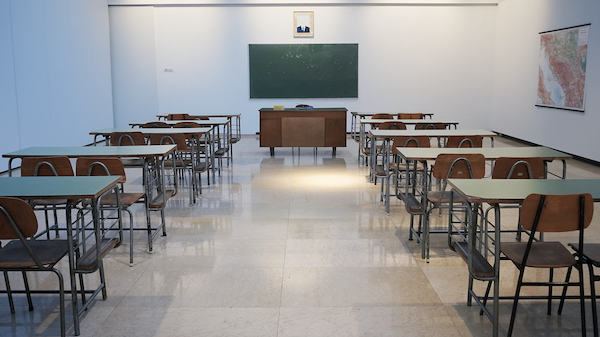
WASHINGTON — A federal judge said May 1 a Pennsylvania school district must allow the After School Satan Club to meet at a middle school.
The school district, which faced numerous parent complaints about the club, banned it earlier this year from meeting on the school’s campus. The American Civil Liberties Union stepped in, representing the club’s sponsoring organization, the Satanic Temple, and sued the school district saying the ban was a violation of First Amendment rights.
The judge sided with the group, emphasizing this very premise.
“When confronted with a challenge to free speech, the government’s first instinct must be to forward expression rather than quash it. Particularly when the content is controversial or inconvenient. Nothing less is consistent with the expressed purpose of American government to secure the core, innate rights of its people,” U.S. District Court Judge John Gallagher wrote in his ruling.
“The sanctity of the First Amendment’s protections must prevail,” he added.
The Satanic Temple has promoted its clubs in other school districts across the country, most recently winning a similar lawsuit in a Virginia school district this year.
The group primarily aims to make a statement showing their opposition to Christian after-school programs around the country — called Good News clubs — that are sponsored by the Child Evangelism Fellowship.
The website of the Satanic Temple, a political activist and religious group based in New York, says it “does not believe in introducing religion into public schools and will only open a club if other religious groups are operating on campus.”
It goes on to say that it aims to “provide a safe and inclusive alternative to the religious clubs that use threats of eternal damnation to convert school children to their belief system” and that it instead focuses on “science, critical thinking, creative arts, and good works for the community.”
Although Pennsylvania’s Saucon Valley School District must allow the After School Satan Club to meet at Saucon Valley Middle School in Hellertown during the school year on three previously agreed-upon dates, the judge denied the group’s request to require the school district to send permission slips for the club home with students.
Some background on this issue goes back to a 2001 Supreme Court decision in Good News Club v. Milford Central School, which said these clubs, which feature Bible lessons, songs, and games, can meet in public schools after school hours on the same terms as other community groups.
Dozens of organizations supported the Good News clubs with “amicus” or “friend-of-the-court” briefs, including a group of 20 theologians and religion scholars of various denominations and law and philosophy professors from the University of Notre Dame.
Several years ago, when the Satanic Temple was promoting its clubs at public elementary schools across the country, Charles Haynes, a senior fellow for religious liberty at the Freedom Forum, said this effort was primarily about raising awareness.
“I don’t think the Satan club is interested in getting into the after-school business. They know the only way to make their point is to call the court’s bluff, saying what’s good for the Good News clubs is good for us,” he said.
He also said the discussion provided a teachable moment for school districts about providing a balance for religious and nonreligious groups.
Jordan Lorence, senior counsel with Alliance Defending Freedom, who helped litigate the Good News Club case before the Supreme Court, wrote in the online magazine The Federalist, that Satan clubs have the right to “espouse their views” but he did not think the group’s leaders were showing “respect for First Amendment traditions or for the dignity of other people to advocate views that differ from theirs.”
Instead, he said: “What I see is a snarky disdain for anyone who believes in religion, demonstrated in part by the use of ‘Satan’ in their organization’s name to evoke responses that have nothing to do with their beliefs.”
These clubs “have the right to meet in public schools but only on the same terms and conditions as everyone else,” he said, adding that the group’s leaders should “abandon their condescending attitudes toward fellow citizens with religious beliefs and join with us to protect the dignity of all people to exercise their freedom of speech.”
